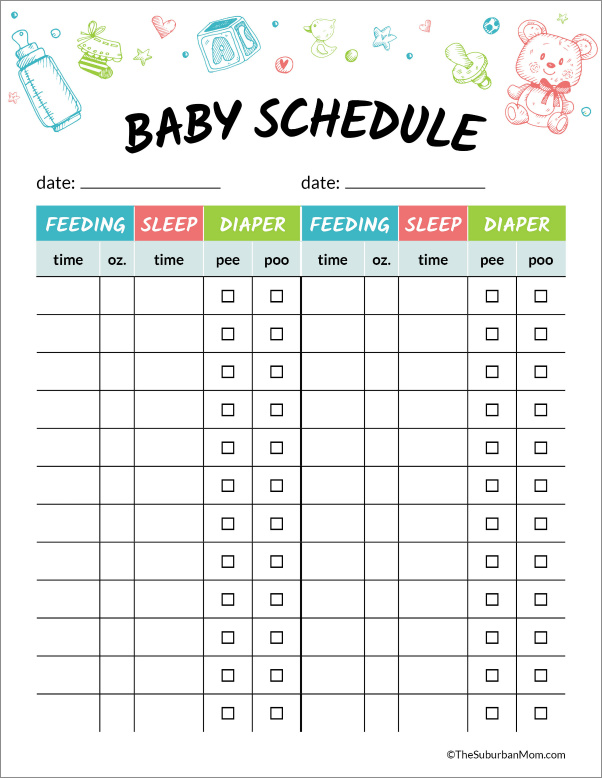As a new parent, one of the most important tasks you will face is establishing a routine for your infant. Creating a schedule can provide structure and predictability for both you and your baby, making daily life more manageable.
In this guide, we will explore the benefits of having an infant schedule, how to create one, and provide some sample schedules to help you get started.
Why is an Infant Schedule Important?
Having a schedule for your infant can bring numerous benefits for both you and your baby. Here are some reasons why an infant schedule is important:
- Predictability: Babies thrive on routine. A consistent schedule can help your baby feel secure and develop a sense of predictability in their daily life.
- Improved Sleep: A well-established schedule can help regulate your baby’s sleep patterns, making it easier for them to fall asleep and stay asleep.
- Feeding and Diapering: A schedule can help you keep track of your baby’s feeding and diapering needs, ensuring they are adequately nourished and comfortable.
- Quality Time: By having a schedule, you can plan activities and dedicate time for bonding with your baby, promoting healthy attachment and development.
How to Create an Infant Schedule
Creating an infant schedule requires careful consideration of your baby’s needs and development. Here are some steps to help you create an effective infant schedule:
1. Observe Your Baby’s Natural Rhythms
Pay attention to your baby’s natural patterns of sleep, wakefulness, and hunger. Observe when they are most alert, when they tend to get fussy, and when they are ready for naps. These observations will serve as the foundation for your schedule.
2. Establish a Consistent Bedtime Routine
A soothing bedtime routine can signal to your baby that it is time to wind down and prepare for sleep. Include activities such as a warm bath, gentle massage, and reading a bedtime story. Stick to the same routine every night to establish a sleep association for your baby.
3. Plan Regular Meal Times
Set consistent times for feeding your baby. Whether you are breastfeeding or bottle-feeding, having a predictable feeding schedule can help regulate your baby’s appetite and digestion. Aim for approximately every 2-3 hours during the day.
4. Allow for Adequate Nap Time
Babies need plenty of sleep to support their growth and development. Create a schedule that includes regular nap times throughout the day. The duration of naps will vary depending on the age of your baby, but aim for at least 2-3 naps during the day.
5. Incorporate Play and Interaction
Make sure to include dedicated time for play and interaction with your baby. This can include activities such as tummy time, singing songs, playing with toys, and reading books. Engaging in these activities will help stimulate your baby’s senses and promote their cognitive development.
6. Be Flexible
Remember that flexibility is key when it comes to creating an infant schedule. Babies are ever-changing, and their needs may vary from day to day. Be prepared to adjust the schedule as needed and be responsive to your baby’s cues and signals.
Sample Infant Schedule
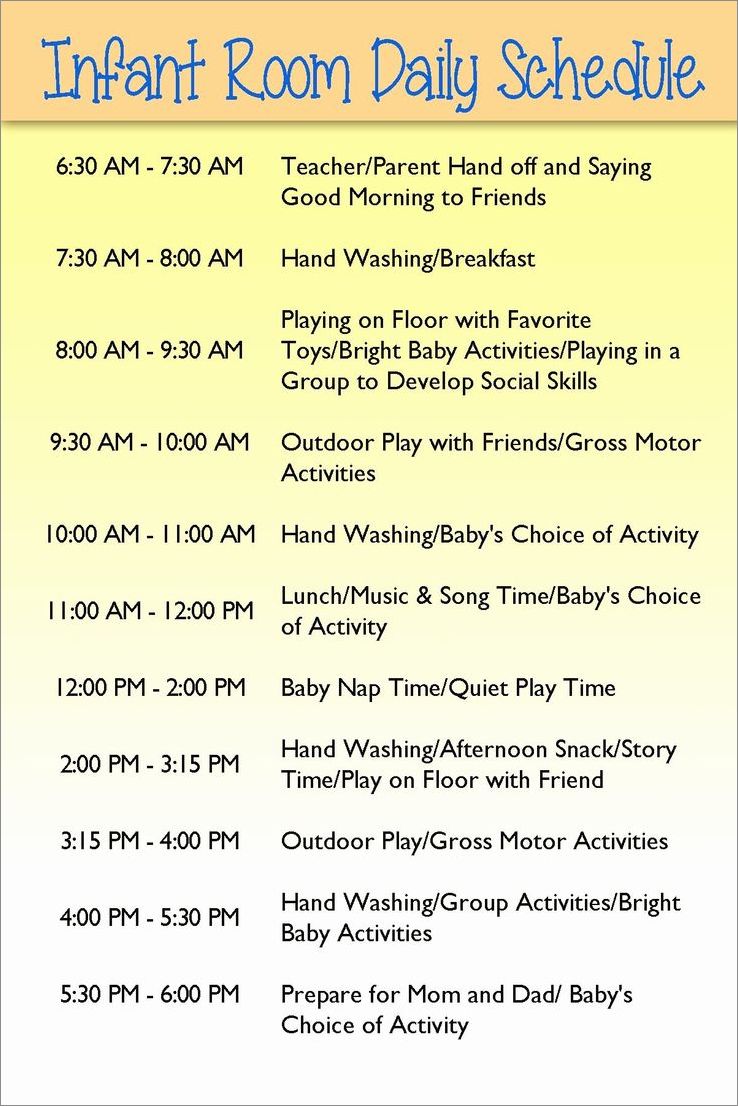
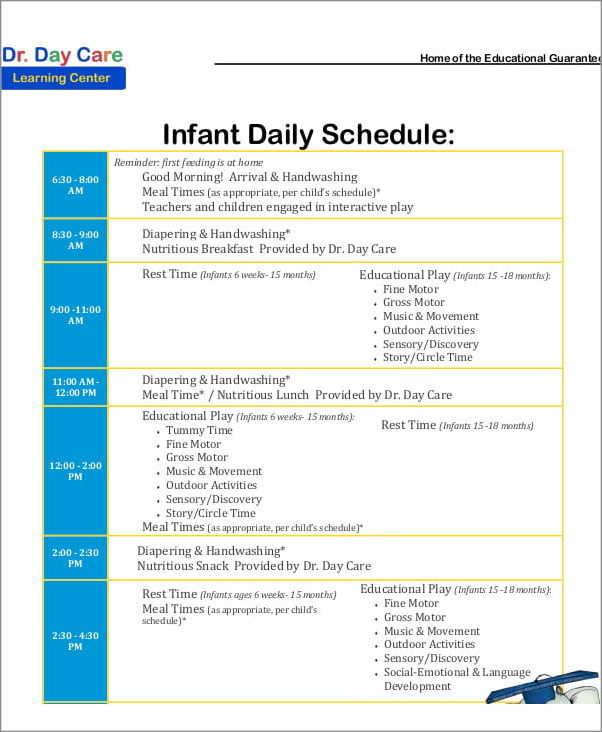
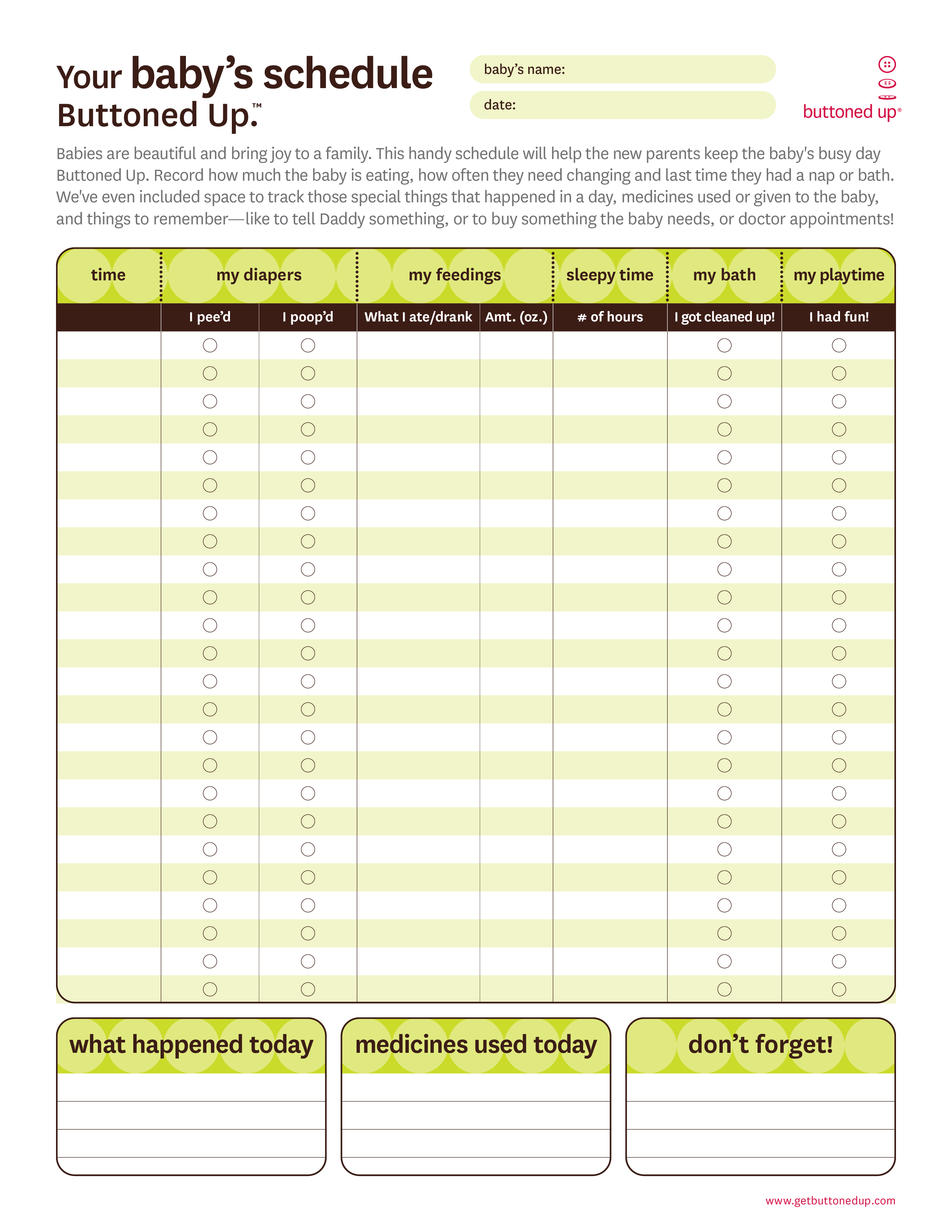
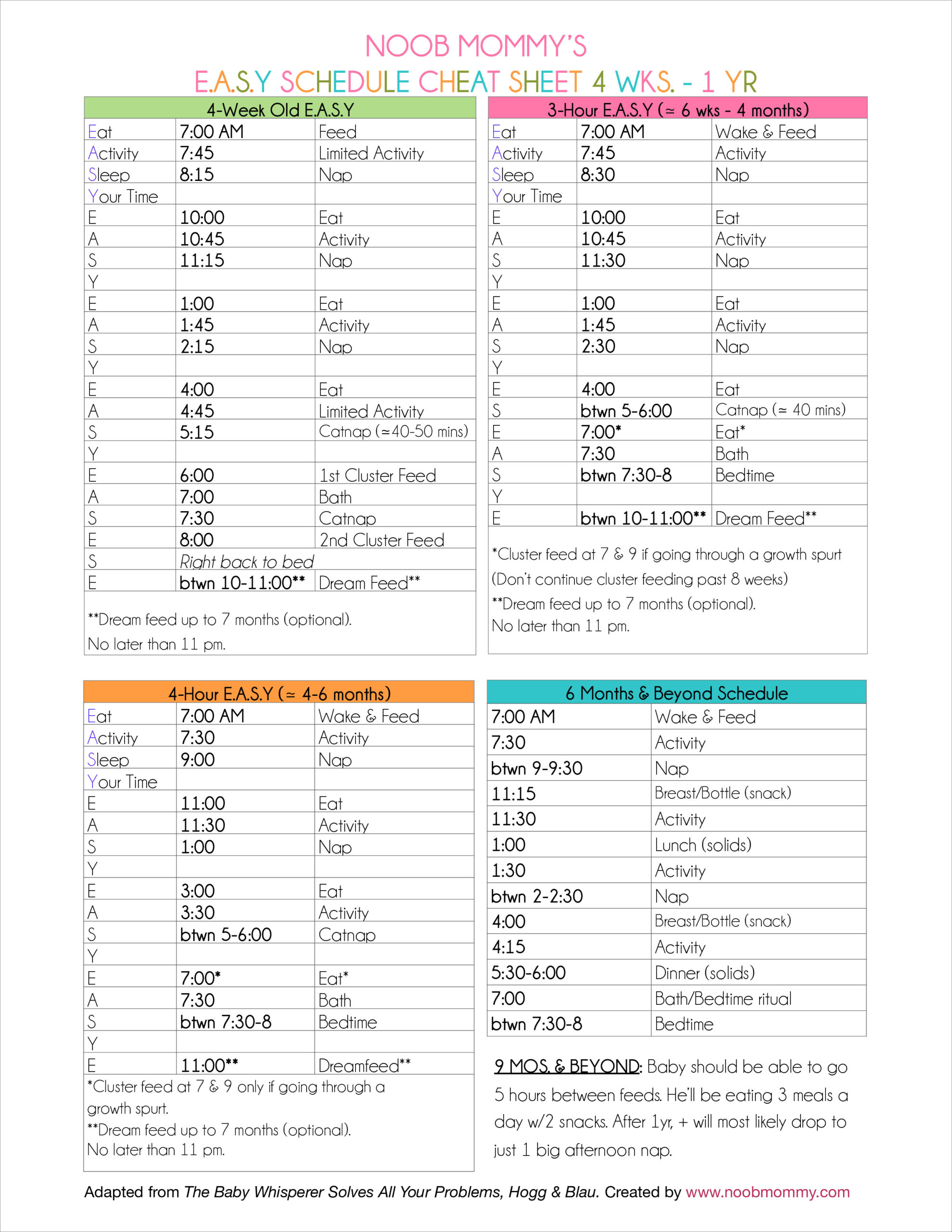
Here is a sample infant schedule to give you an idea of how to structure your baby’s day:
- 7:00 AM: Wake up and diaper change
- 7:30 AM: Breakfast and playtime
- 9:00 AM: Nap time
- 10:30 AM: Diaper change and playtime
- 11:30 AM: Lunch and outdoor activity
- 1:00 PM: Nap time
- 3:00 PM: Snack and playtime
- 4:30 PM: Diaper change and quiet play
- 6:00 PM: Dinner and family time
- 7:30 PM: Bedtime routine
- 8:00 PM: Bedtime
Tips for Success
Here are some additional tips to help you succeed in implementing an infant schedule:
- Be patient: It may take some time for your baby to adjust to the schedule. Be patient and consistent in your approach.
- Communicate with your partner: If you have a partner, make sure you are both on the same page when it comes to the schedule. This will help ensure consistency and support.
- Stay organized: Use tools such as a baby schedule tracker or a smartphone app to help you stay organized and keep track of your baby’s routine.
- Seek support: Don’t hesitate to reach out to other parents or professionals for support and advice. Parenting can be challenging, and having a support system can make a big difference.
Conclusion
An infant schedule can provide structure and predictability in the early months of your baby’s life. By observing your baby’s natural rhythms, establishing consistent routines, and being flexible, you can create a schedule that works for both you and your baby. Remember, every baby is unique, so it’s important to adapt the schedule to meet your baby’s individual needs. With time and patience, you will find a routine that brings balance and harmony to your daily life with your little one.
Infant Schedule Template – Download
